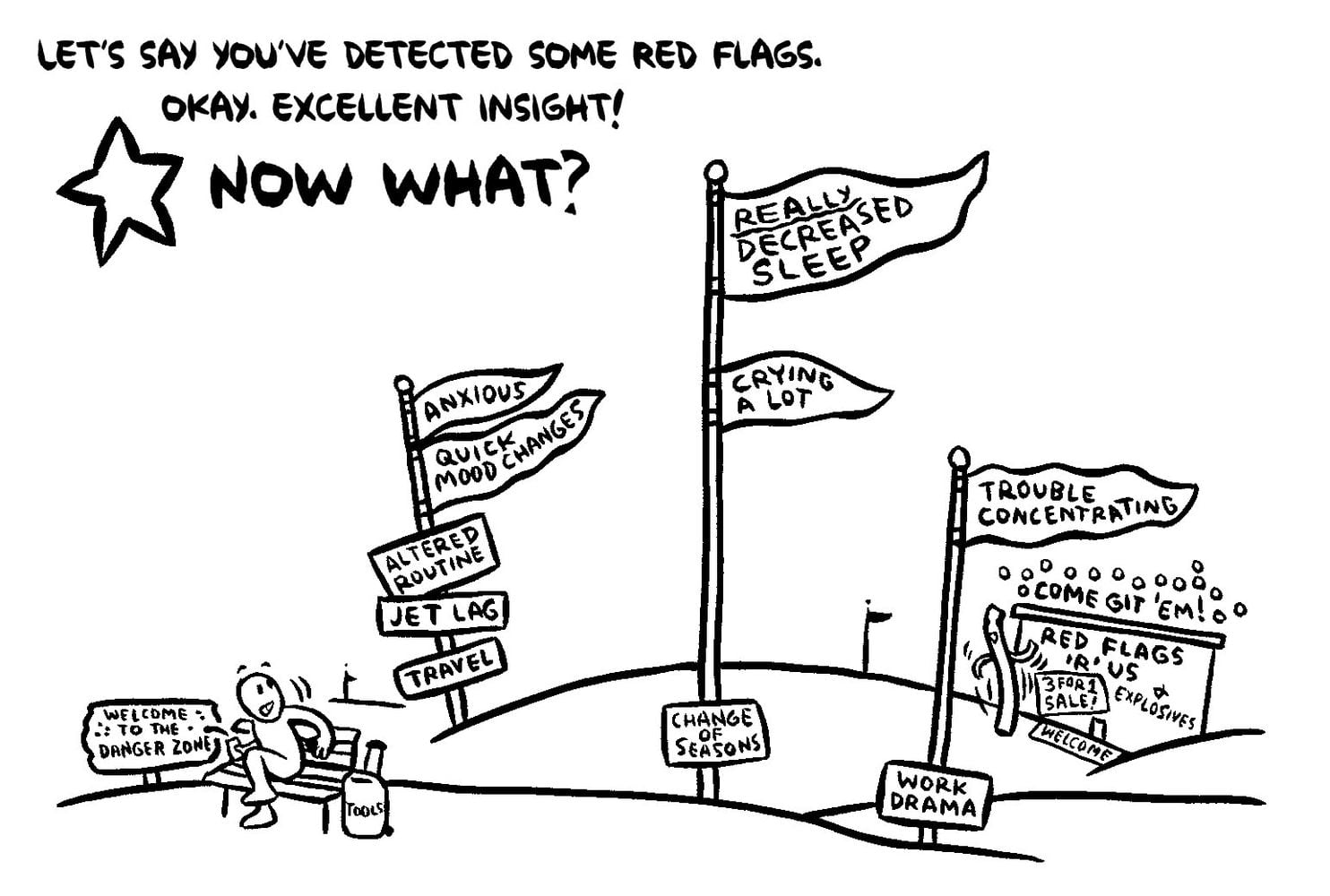Mood disorders are no laughing matter. According to the Centers for Disease Control and Prevention, they're the third-most-common cause of hospitalization for people between the ages of 18 and 44 in the United States.
So why did Ellen Forney write a comic book about them?
"Rock Steady: Brilliant Advice from My Bipolar Life" is her attempt to pay it forward.
Forney, a cartoonist who received a diagnosis of bipolar disorder 20 years ago, has amassed a wealth of knowledge on how to deal with mood disorders.
After 14 years of stability, she has created a graphic manual to share what she learned over years of medical treatment and self-care.
The subject matter may not be funny, but Forney often is. She offers silly acronyms, merit badges and personal anecdotes to leaven what can feel like heavy subject matter.
Her upbeat artwork and encouraging words make self-care seem not just possible but even desirable. And she doesn't shy away from the difficulties of coping with a mental illness, including the financial challenges of medication and how hard it can be to find the right treatment.
The book is worth its cover price for a single chapter alone: "The Danger Zone."
 (Ellen Forney/Fantagraphics Books)
(Ellen Forney/Fantagraphics Books)
It's packed with descriptions of signs that you may be headed toward depression or a manic episode - signs that could be easy to miss if you're not on the lookout.
The book is a postscript of sorts, a companion to Forney's 2012 graphic memoir "Marbles: Mania, Depression, Michelangelo, and Me."
But it's a stand-alone volume, and full of meatier advice than its lighthearted package might imply.
"Stability is a lifelong project for anyone with a mood disorder," she writes. "It gets easier! But it takes commitment."
And if there's one thing Forney's serious about, it's this: If you have a mood disorder, you're in good company. "You're not alone," she writes, "and you are not alone in feeling alone."
Science AF is ScienceAlert's new editorial section where we explore society's most complex problems using science, sanity and humor.
2018 © The Washington Post
This article was originally published by The Washington Post.
